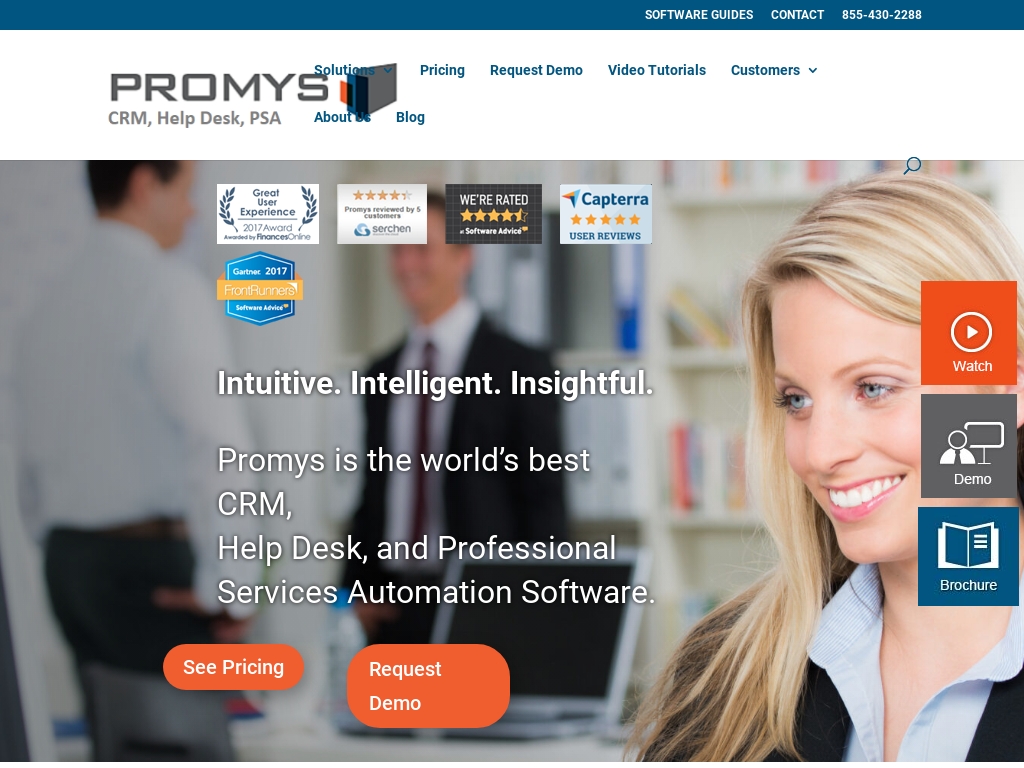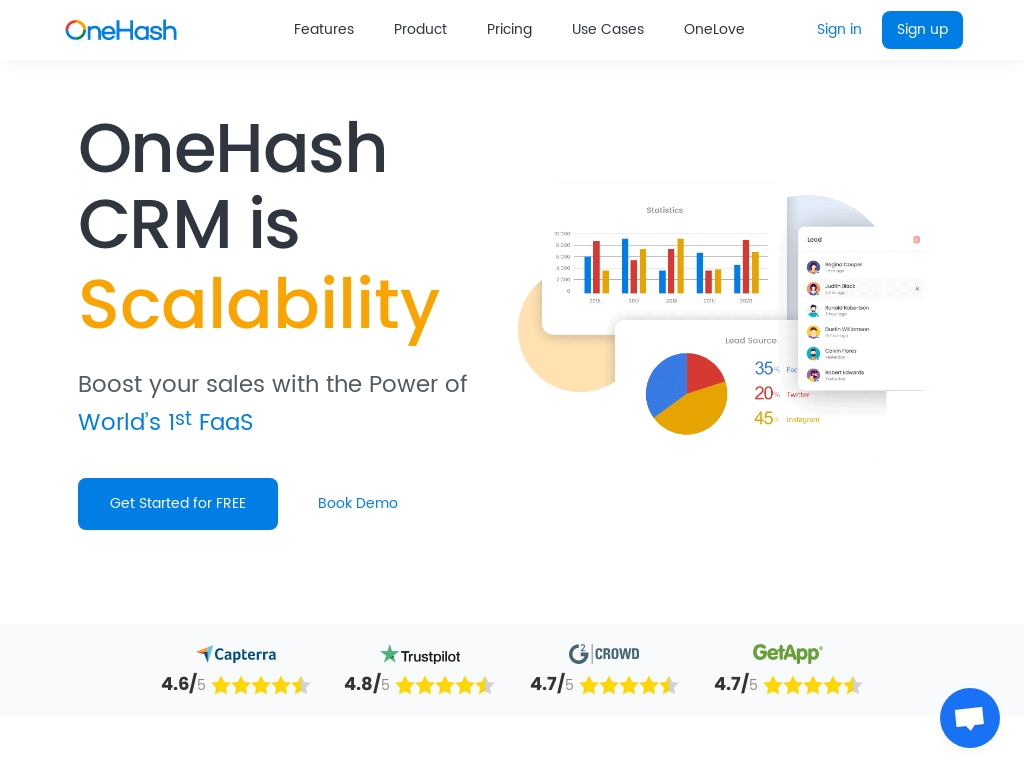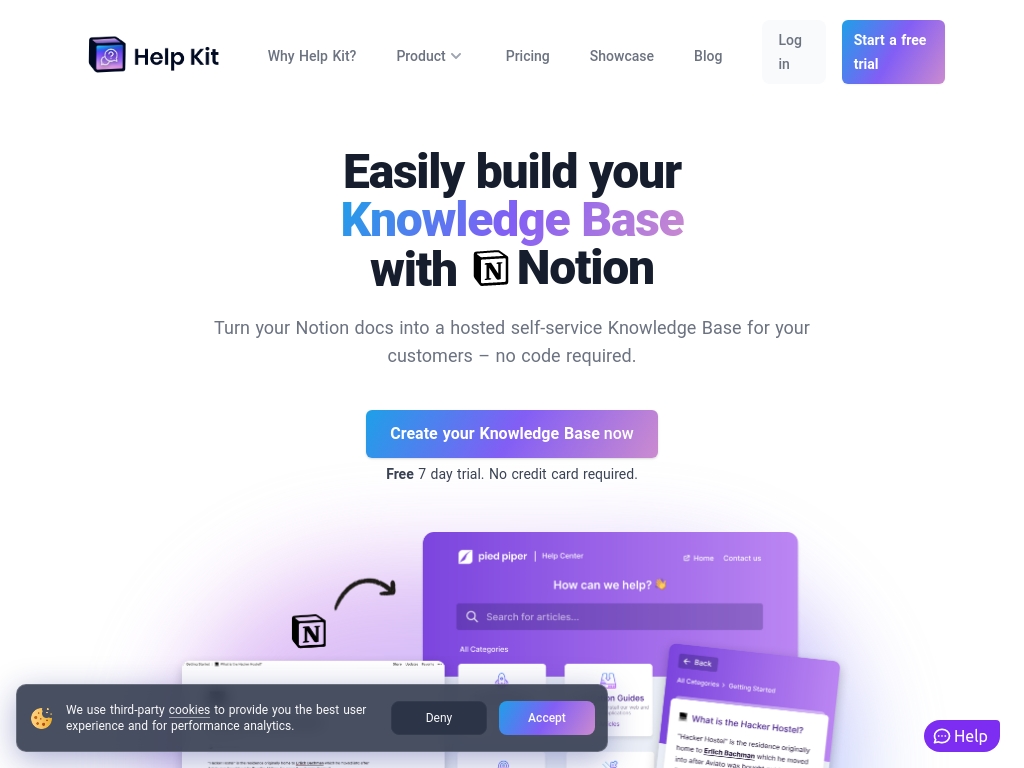
5 Help Desk Software Success Stories [2025]
Struggling with maintaining efficient customer support? Consider building help desk software. This business idea revolves around creating a platform that organizations can deploy to manage customer inquiries, tech support, and troubleshooting.
Help desk software streamlines the process of ticketing, tracking, and resolving customer issues, thereby enhancing user satisfaction and operational efficiency. By offering features like multi-channel support, automated workflows, and real-time analytics, you can provide a comprehensive solution that addresses the pain points of various businesses.
The potential here is substantial, as companies of all sizes are increasingly recognizing the importance of great customer service. Developing this software requires a solid understanding of IT infrastructure, coding, and customer service practices. However, for those willing to put in the effort, it’s an opportunity to create a scalable, impactful product that meets real market needs.
In this list, you'll find real-world help desk software success stories and very profitable examples of starting a help desk software that makes money.
1. Inflectra Corporation ($9.96M/year)
Adam Sandman, founder and CEO of Inflectra Corporation, came up with the idea for his business while working at Sapient. He and his colleague realized that there was a need for a more affordable and agile requirements and project management system in the software industry. This led Sandman to quit his job, code the first version of SpiraTest himself, and launch Inflectra.
How much money it makes: $9.96M/year
How much did it cost to start: $20K
How many people on the team: 50

Inflectra Corporation's Founder and CEO Adam Sandman shares how he went from being a stay-at-home dad to running a tech company with $10MM in ARR, offering insight on launching and marketing a tech product in the industry.




2. Promys ($4.5M/year)
In starting their business, the founder realized the need for a workflow system to offset the complexity of a growing company. Unable to find a suitable solution in the market, they had their development team build the first version and eventually spun it out as a focused business. Throughout the process, they emphasized the importance of getting an early version of the product to customers to gather feedback and make necessary adjustments.
How much money it makes: $4.5M/year


This case study follows a serial entrepreneur's journey in the Information Technology industry, where he founded successful companies such as UNIS LUMIN and Promys, and offers advice to aspiring founders, emphasizing the importance of adjusting to changing markets and learning from early customers' input.




3. OneHash, Inc. ($144K/year)
Rohit Gadia, co-founder of OneHash Inc, came up with the idea for their business, OneHash CRM and OneChat, based on the concept of FaaS (FOSS as a Service), which provides the benefits of SaaS at the affordability of FOSS. The company started with a two-person team and a modest investment of $2 million from their savings, and despite initial obstacles, OneHash now has over 410,000 signups and aims to have 10 million users within the next 10 years.
How much money it makes: $144K/year
How much did it cost to start: $10K
How many people on the team: 7


OneHash Inc. is a startup that offers affordable FOSS+ SaaS CRM and customer assistance services, with powerful reporting features as well as scalability and extendibility, and currently has over 410,000 signups from all seven continents.




4. Siva Solutions Inc. ($60K/year)
Senthil Kumar, the founder of Siva Solutions Inc and American Dental Software, was inspired to start his business after his wife, who is an oral surgeon, told him about the exorbitant prices charged by website developers in the dental industry. As a software developer himself, Kumar saw an opportunity to offer affordable website development solutions specifically tailored to dentists. He incorporated features such as 3D dental education videos and interactive patient forms into the websites, ultimately helping dentists improve their online presence and streamline their processes.
How much money it makes: $60K/year
How many people on the team: 20


Senthil Kumar spearheads Siva Solutions Inc, a game-changing digital marketing and software development company which caters to dentists using an array of well-crafted products to manage patient data and inquiries, thus enabling efficient management of processes, while boosting them to the 1st page on Google.




5. Helpkit ($54K/year)
Dominik Sobe, the solo founder of Seven Degrees Labs, came up with the idea for his most successful product, HelpKit, while working on other projects that required a help desk tool. Realizing that he already documented his business using Notion, he wanted to create a professional knowledge base using the platform, leading him to build HelpKit. Now exceeding his goal of $3K MRR, Sobe is grateful for the success of HelpKit and the ability to work on his own terms.
How much money it makes: $54K/year
How much did it cost to start: $0
How many people on the team: 1


Case study of a solo founder who built HelpKit, a profitable software product that turns Notion pages into professional knowledge bases, surpassing his goal of $3K MRR by another $2K, and shares his process of building the MVP using Figma and a landing page to validate the idea, launching on Twitter, and growing through sharing his story on Reddit and Indiehackers, creating free tools like Notion Simple Table Generator, building on a growing niche, getting to know his customers, and accepting slow growth.





Download the report and join our email newsletter packed with business ideas and money-making opportunities, backed by real-life case studies.

Download the report and join our email newsletter packed with business ideas and money-making opportunities, backed by real-life case studies.

Download the report and join our email newsletter packed with business ideas and money-making opportunities, backed by real-life case studies.

Download the report and join our email newsletter packed with business ideas and money-making opportunities, backed by real-life case studies.

Download the report and join our email newsletter packed with business ideas and money-making opportunities, backed by real-life case studies.

Download the report and join our email newsletter packed with business ideas and money-making opportunities, backed by real-life case studies.

Download the report and join our email newsletter packed with business ideas and money-making opportunities, backed by real-life case studies.

Download the report and join our email newsletter packed with business ideas and money-making opportunities, backed by real-life case studies.











